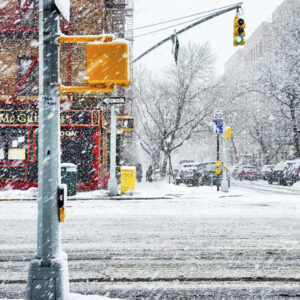5 Tips for Winter Storm Preparedness
Winter storms can be dangerous and disruptive, but there are things you can do to prepare and stay safe. Here are 5 tips to help you weather the storm:
 Be Weather Aware
Be Weather Aware
The first step to preparedness is staying informed about the weather. Monitor weather forecasts and warnings from your local National Weather Service office. Pay attention to the severity of the storm, the expected amount of snow or ice, and the predicted wind chill. This information will help you make informed decisions about your activities and preparations.
Stock Up on Supplies
Gather enough food and water to last for several days in case you get snowed in. Don’t forget about non-perishable items, canned goods, and bottled water. You may also want to stock up on batteries, flashlights, a first-aid kit, and any medications you or your family may need.
Winterize Your Home
Make sure your home is sealed up tight to keep the cold out. Check for drafts around windows and doors and seal them with caulking or weather stripping. Insulate your attic and basement to prevent heat loss. Trim any tree branches that could fall on your house or power lines.
Prepare Your Car
Get your car winterized. Make sure your tires have good tread and consider getting snow tires if you live in an area that gets a lot of snow. Check your antifreeze and wiper fluid levels. Keep an emergency kit in your car with a blanket, jumper cables, a flashlight, and snacks.
Stay Connected and Informed
Make sure you have a way to stay connected during the storm, even if the power goes out. Have a battery-powered radio or TV, and charge your cell phone before the storm hits. Let friends and family know your plans and check in with them regularly.
* Bonus Tip: Don’t forget about your pets! Make sure they have a warm place to stay and plenty of food and water.
By following these tips, you can help ensure your safety and comfort during a winter storm. Remember, it’s always better to be over-prepared than under-prepared.
Additional Tips:
- Have a plan for what to do if the power goes out.
- Know how to shut off your water and gas valves in case of emergencies.
- Clear snow from your sidewalks and driveway to prevent falls.
- Check on elderly or disabled neighbors to make sure they are okay.
By following these tips, you can help ensure your safety and the safety of others during a winter storm.
I hope this blog post was helpful. Please stay safe and warm this winter!